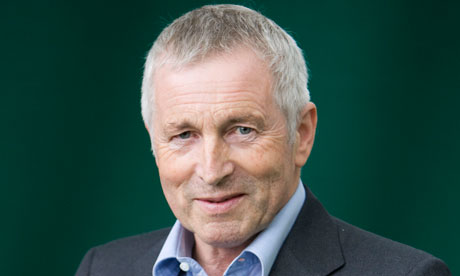
Photograph: Murdo Macleod for the Guardian
Veteran broadcaster Jonathan Dimbleby has admitted that he tried cocaine once and called on middle-class people dabbling in drugs to think again about the misery they are causing in south America.
The host of long-running BBC Radio 4 show Any Questions? said he has a "contempt for cocaine sniffers in this country who are intelligent middle-class people but do not realise that they are fuelling a drugs war that is leading to misery for millions".
He revealed he took the drug when he was in his early 20s and also tried marijuana but did not enjoy either.
"I had cannabis twice in my early 20s. And once, in America [at around the same age], I did a line of cocaine. I sneezed it all over the place much to the dismay of people around who saw it as this precious substance," Dimbleby said. "It tickled my nose, and then it blocked my nose. And I had no experience from it at all."
Dimbleby, 67, made his remarks in an interview with the Daily Telegraphto publicise his new BBC2 series A South American Journey with Jonathan Dimbleby.
He was shocked by the effects of the cocaine trade in Colombia. "By our criminalising the use of cocaine, of people stuffing their noses with coke, we are causing mayhem to the lives of millions of people in South America," he said.
He did not go as far as calling for the decriminalisation of the drug but said "we should take the matter more seriously".
He added: "I think the criminalisation of drugs globally has produced far greater trouble for everyone than it if were not criminal."
He said it was "ridiculous" to attack public figures such as politicians for having taken drugs when they were at university.
"I think it is ridiculous to lay into adults who happen to have responsibility on the basis of what they did or didn't do at university," Dimbleby said.


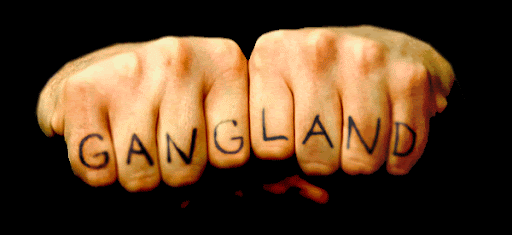
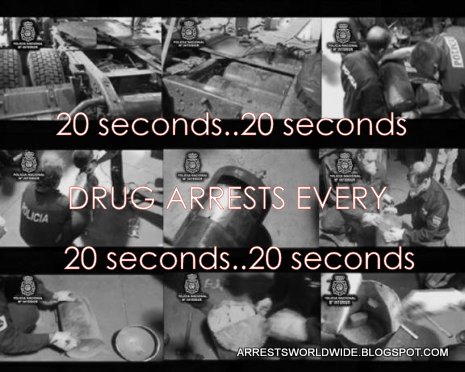

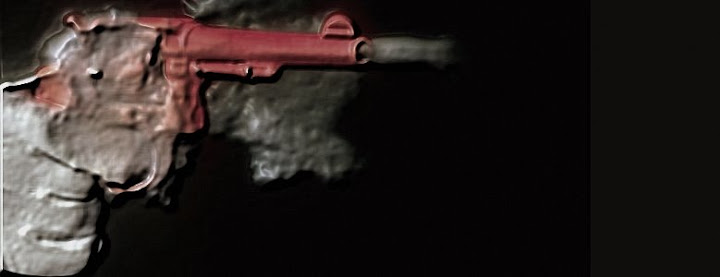
 19:55
19:55
 El NACHO
El NACHO

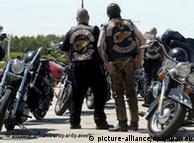
 Police towed away this Hells Angels motorcycle from a clubhouse Wednesday after a raid also found drugs, weapons and Hells Angels paraphernalia. Ottawa police
Police towed away this Hells Angels motorcycle from a clubhouse Wednesday after a raid also found drugs, weapons and Hells Angels paraphernalia. Ottawa police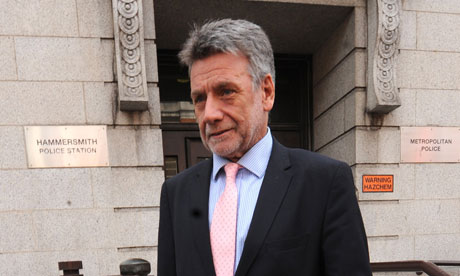
 The action was carried out by the Mexican Army. The Lynx, is a cousin of Henry Plancarte Solis, also leader of the Knights Templar. The Attorney General's Office offered a reward of up to 15 millions of dollars for information leading to his capture. The action was achieved in the town of Mujica, in the municipality of Nueva Italia, Michoacán. In the raid also arrested Mario Alberto Gallardo Rodríguez, alias El Mayo, and a young child.
The action was carried out by the Mexican Army. The Lynx, is a cousin of Henry Plancarte Solis, also leader of the Knights Templar. The Attorney General's Office offered a reward of up to 15 millions of dollars for information leading to his capture. The action was achieved in the town of Mujica, in the municipality of Nueva Italia, Michoacán. In the raid also arrested Mario Alberto Gallardo Rodríguez, alias El Mayo, and a young child. Suspected drug traffickers dumped 35 bodies at rush hour beneath a busy overpass in the heart of a major Gulf coast city as gunmen pointed weapons at frightened drivers. Mexican authorities said Wednesday they are examining surveillance video for clues to who committed the crime. Horrified motorists grabbed cell phones and sent Twitter messages warning others to avoid the area near the biggest shopping mall in Boca del Rio, part of the metropolitan area of Veracruz city. 11 Comments Weigh InCorrections? inShare ( no / Associated Press ) - Soldiers and police block off an area where 35 bodies lay under an overpass in Veracruz, Mexico, Tuesday Sept. 20, 2011. Masked gunmen blocked traffic on the busy avenue in a Gulf of Mexico coastal city and left the bodies piled in two trucks and on the ground, according to authorities. The scene was a sharp escalation in drug violence in Veracruz state, which sits on an important route for drugs and Central American migrants heading north. The gruesome gesture marked a sharp escalation in cartel violence in Veracruz state, which sits on an important route for drugs and Central American migrants heading north. The Zetas drug cartel has been battling other gangs for control of the state. Prosecutors said it’s too soon to draw conclusions from the surveillance video. “We’re not going to confirm or deny anything,” Veracruz state Attorney General Reynaldo Escobar Perez told the Televisa network Wednesday. “We’re looking at it in different ways, we’re seeing different numbers, that’s why we don’t want to get ahead of ourselves.” Escobar said the bodies were left piled in two trucks and on the ground under the overpass near the statue of the Voladores de Papantla, ritual dancers from Veracruz state. He said some of the victims had their heads covered with black plastic bags and showed signs of torture. Police had identified seven of the victims so far and all had criminal records for murder, drug dealing, kidnapping and extortion and were linked to organized crime, Escobar said. Motorists posted Twitter warnings said the masked gunmen were in military uniforms and were blocking Manuel Avila Camacho Boulevard. “They don’t seem to be soldiers or police,” one tweet read. Another said, “Don’t go through that area, there is danger.” Veracruz is currently hosting a conference of Mexico’s top state and federal prosecutors and judiciary officials. Local media said that 12 of the victims were women and that some of the dead men had been among prisoners who escaped from three Veracruz prisons on Monday, but Escobar denied the escaped convicts were among the dead. At least 32 inmates got away from the three Veracruz prisons. Police recaptured 14 of them. Drug violence has claimed more than 35,000 lives across Mexico since 2006, according to government figures. Others put the number at more than 40,000.
Suspected drug traffickers dumped 35 bodies at rush hour beneath a busy overpass in the heart of a major Gulf coast city as gunmen pointed weapons at frightened drivers. Mexican authorities said Wednesday they are examining surveillance video for clues to who committed the crime. Horrified motorists grabbed cell phones and sent Twitter messages warning others to avoid the area near the biggest shopping mall in Boca del Rio, part of the metropolitan area of Veracruz city. 11 Comments Weigh InCorrections? inShare ( no / Associated Press ) - Soldiers and police block off an area where 35 bodies lay under an overpass in Veracruz, Mexico, Tuesday Sept. 20, 2011. Masked gunmen blocked traffic on the busy avenue in a Gulf of Mexico coastal city and left the bodies piled in two trucks and on the ground, according to authorities. The scene was a sharp escalation in drug violence in Veracruz state, which sits on an important route for drugs and Central American migrants heading north. The gruesome gesture marked a sharp escalation in cartel violence in Veracruz state, which sits on an important route for drugs and Central American migrants heading north. The Zetas drug cartel has been battling other gangs for control of the state. Prosecutors said it’s too soon to draw conclusions from the surveillance video. “We’re not going to confirm or deny anything,” Veracruz state Attorney General Reynaldo Escobar Perez told the Televisa network Wednesday. “We’re looking at it in different ways, we’re seeing different numbers, that’s why we don’t want to get ahead of ourselves.” Escobar said the bodies were left piled in two trucks and on the ground under the overpass near the statue of the Voladores de Papantla, ritual dancers from Veracruz state. He said some of the victims had their heads covered with black plastic bags and showed signs of torture. Police had identified seven of the victims so far and all had criminal records for murder, drug dealing, kidnapping and extortion and were linked to organized crime, Escobar said. Motorists posted Twitter warnings said the masked gunmen were in military uniforms and were blocking Manuel Avila Camacho Boulevard. “They don’t seem to be soldiers or police,” one tweet read. Another said, “Don’t go through that area, there is danger.” Veracruz is currently hosting a conference of Mexico’s top state and federal prosecutors and judiciary officials. Local media said that 12 of the victims were women and that some of the dead men had been among prisoners who escaped from three Veracruz prisons on Monday, but Escobar denied the escaped convicts were among the dead. At least 32 inmates got away from the three Veracruz prisons. Police recaptured 14 of them. Drug violence has claimed more than 35,000 lives across Mexico since 2006, according to government figures. Others put the number at more than 40,000.
 Swiss bank UBS on Sunday increased the amount it said it had lost on rogue equity trades to $2.3 billion and alleged a trader concealed his risky deals by creating fictitious hedging positions in internal systems. UBS stunned markets on Thursday when it announced unauthorised trades had lost it some $2 billion. London trader Kweku Adoboli was charged on Friday with fraud and false accounting dating back to 2008. "The loss resulted from unauthorised speculative trading in various S&P 500, DAX, and EuroStoxx index futures over the last three months," UBS said in a brief statement. "The loss arising from this matter is $2.3 billion. As previously stated, no client positions were affected." Global stock markets have been extremely volatile in recent months, plunging on concerns over euro zone and U.S. debt crises and then rebounding on hopes for their resolution. The loss is a disaster for the reputation of Switzerland's biggest bank, which had just started to recover after it almost collapsed during the financial crisis and faced a damaging U.S. investigation into aiding wealthy Americans to dodge taxes. "Loss even more. Reads like they're making excuses," said Helvea analyst Peter Thorne of the UBS statement. The new scandal has prompted calls for its top managers to step down and for its investment bank to be split into a separate unit from its core wealth management business. Chief Executive Oswald Gruebel, who was brought out of retirement in 2009 to turn the bank around, was quoted in a newspaper on Sunday as saying he is not considering quitting over the crisis, but said it was up to the board to decide. In a memo to staff on Sunday, he said: "Ultimately, the buck stops with me. I and the rest of senior management are responsible for dealing with wrongdoing." Swiss newspapers quoted unnamed insiders as saying the UBS board and important shareholders such as the Singapore sovereign wealth fund were still backing Gruebel, with immediate changes at the top the last thing the bank needed. Gruebel is widely expected to present plans to drastically cut back the investment bank at an investor day in November. INDEPENDENT INVESTIGATION The bank, whose three keys logo symbolise "confidence, security, discretion," has pulled its "We will not rest" global advertising campaign for now, that was designed by advertising agency Publicis to try to rebuild its image. Meanwhile, UBS client advisers have been writing to customers to reassure them of the underlying financial strength of the bank despite the trading loss, a spokesman said. "That we now suffer this setback at this point in our efforts to improve our reputation is very disappointing. This incident also sets us back somewhat in our capital-building efforts," Gruebel said in his memo. "However, I wish to remind you that our fundamental strengths as a firm remain intact... we remain one of the best capitalized banks in the industry. UBS said its board of directors had set up a committee chaired by independent director David Sidwell, former chief financial officer at Morgan Stanley, to conduct an independent investigation into the trades and the bank's control systems. The bank said it had covered the risk resulting from the unauthorised trades, and its equities business was again operating normally within previously defined risk limits. It said the trader had allegedly concealed the fact his trades violated UBS risk limits by executing fake exchange-traded fund (ETFs) positions. "Following inquiries directed to him by UBS control functions that were reviewing his positions, the trader revealed his unauthorised activity," the bank said. "The positions taken were within the normal business flow of a large global equity trading house as part of a properly hedged portfolio," UBS said. "However, the true magnitude of the risk exposure was distorted because the positions had been offset in our systems with fictitious, forward-settling, cash ETF positions." The Sunday Times cited unnamed insiders saying the trader placed bets worth $10 billion before his losses were detected. ETFs are index funds listed on an exchange and can be traded just like regular stocks. They try to replicate index performances and offer lower costs than actively managed funds, but regulators have warned about risks from some complex ETFs. In the past three months, DAX futures have fallen 22 percent, Eurostoxx 50 futures have dropped 20 percent and S&P 500 futures have dipped 4 percent. The instruments involved in the UBS case are similar to those that Jerome Kerviel, the rogue trader at Societe Generale, traded when he racked up a $6.7 billion loss in unauthorised deals in 2008. Christoph Blocher, vice-president of the right-wing Swiss People's Party (SVP) -- the country's biggest -- renewed his calls for a splitting off of the investment bank. "One has to seriously examine a ban on investment banking for commercial banks," he told the SonntagsZeitung, adding his party might team up with the center-left Social Democrats to push for such a move.
Swiss bank UBS on Sunday increased the amount it said it had lost on rogue equity trades to $2.3 billion and alleged a trader concealed his risky deals by creating fictitious hedging positions in internal systems. UBS stunned markets on Thursday when it announced unauthorised trades had lost it some $2 billion. London trader Kweku Adoboli was charged on Friday with fraud and false accounting dating back to 2008. "The loss resulted from unauthorised speculative trading in various S&P 500, DAX, and EuroStoxx index futures over the last three months," UBS said in a brief statement. "The loss arising from this matter is $2.3 billion. As previously stated, no client positions were affected." Global stock markets have been extremely volatile in recent months, plunging on concerns over euro zone and U.S. debt crises and then rebounding on hopes for their resolution. The loss is a disaster for the reputation of Switzerland's biggest bank, which had just started to recover after it almost collapsed during the financial crisis and faced a damaging U.S. investigation into aiding wealthy Americans to dodge taxes. "Loss even more. Reads like they're making excuses," said Helvea analyst Peter Thorne of the UBS statement. The new scandal has prompted calls for its top managers to step down and for its investment bank to be split into a separate unit from its core wealth management business. Chief Executive Oswald Gruebel, who was brought out of retirement in 2009 to turn the bank around, was quoted in a newspaper on Sunday as saying he is not considering quitting over the crisis, but said it was up to the board to decide. In a memo to staff on Sunday, he said: "Ultimately, the buck stops with me. I and the rest of senior management are responsible for dealing with wrongdoing." Swiss newspapers quoted unnamed insiders as saying the UBS board and important shareholders such as the Singapore sovereign wealth fund were still backing Gruebel, with immediate changes at the top the last thing the bank needed. Gruebel is widely expected to present plans to drastically cut back the investment bank at an investor day in November. INDEPENDENT INVESTIGATION The bank, whose three keys logo symbolise "confidence, security, discretion," has pulled its "We will not rest" global advertising campaign for now, that was designed by advertising agency Publicis to try to rebuild its image. Meanwhile, UBS client advisers have been writing to customers to reassure them of the underlying financial strength of the bank despite the trading loss, a spokesman said. "That we now suffer this setback at this point in our efforts to improve our reputation is very disappointing. This incident also sets us back somewhat in our capital-building efforts," Gruebel said in his memo. "However, I wish to remind you that our fundamental strengths as a firm remain intact... we remain one of the best capitalized banks in the industry. UBS said its board of directors had set up a committee chaired by independent director David Sidwell, former chief financial officer at Morgan Stanley, to conduct an independent investigation into the trades and the bank's control systems. The bank said it had covered the risk resulting from the unauthorised trades, and its equities business was again operating normally within previously defined risk limits. It said the trader had allegedly concealed the fact his trades violated UBS risk limits by executing fake exchange-traded fund (ETFs) positions. "Following inquiries directed to him by UBS control functions that were reviewing his positions, the trader revealed his unauthorised activity," the bank said. "The positions taken were within the normal business flow of a large global equity trading house as part of a properly hedged portfolio," UBS said. "However, the true magnitude of the risk exposure was distorted because the positions had been offset in our systems with fictitious, forward-settling, cash ETF positions." The Sunday Times cited unnamed insiders saying the trader placed bets worth $10 billion before his losses were detected. ETFs are index funds listed on an exchange and can be traded just like regular stocks. They try to replicate index performances and offer lower costs than actively managed funds, but regulators have warned about risks from some complex ETFs. In the past three months, DAX futures have fallen 22 percent, Eurostoxx 50 futures have dropped 20 percent and S&P 500 futures have dipped 4 percent. The instruments involved in the UBS case are similar to those that Jerome Kerviel, the rogue trader at Societe Generale, traded when he racked up a $6.7 billion loss in unauthorised deals in 2008. Christoph Blocher, vice-president of the right-wing Swiss People's Party (SVP) -- the country's biggest -- renewed his calls for a splitting off of the investment bank. "One has to seriously examine a ban on investment banking for commercial banks," he told the SonntagsZeitung, adding his party might team up with the center-left Social Democrats to push for such a move. In September 2008, 11 decapitated bodies were discovered in Mexico’s Yucatan peninsula. When police arrested the killers, they found an altar in their home dedicated to Santa Muerte – the patron saint of death for Mexican drug cartels. One year later, an illegal immigrant called Jorge Flores Rojas was arrested in North Carolina for running a sex ring. He, too, had built a shrine in his east Charlotte apartment to Santa Muerte. Flores forced his girls to have sex with as many as 20 men a day while he knelt in his living room praying to the skeletal figure of death. In August 2011, the Mexican army stumbled upon a tunnel that ran right under the US border for 300 metres. It was six feet high and equipped with lights and ventilation. It also housed – you guessed it – an altar to Santa Muerte. Europeans complain mightily that Muslim immigration has introduced fundamentalism to their secular continent. Yet they tend to look upon Middle America’s fear of illegal Hispanic immigration with contempt, as if its paranoia was motivated entirely by racism. Reporting on new legislation designed to drive illegal immigrants out of the Deep South, The Guardian’s Paul Harris writes that it heralds, “The prospect of a new Jim Crow era – the time when segregation was law – across a vast swath of the old Confederacy. [The legislation] will ostracise and terrorise a vulnerable Hispanic minority with few legal rights.” Indeed it will, and that is a tragedy. But the debate about illegal immigration isn’t just about competition over jobs or lingering white racism. Many Americans share the European fear that mass migration is subverting their democratic culture from within. In the same way that exotic cells of Jihadists have established themselves in London and Paris, criminal gangs motivated by bloodlust and kinky spiritualism have been found living in the suburbs of Boston and Atlanta. One of its many manifestations is the cult of Santa Meurte. Santa Muerte is part Virgin Mary, part folk demon. The image of a cloaked saint wielding a scythe is supposed to offer those who venerate it spiritual protection. Offerings come in the form of flowers, alcohol, sweets and tobacco. Contraband can be used to invoke protection from the police. For the poor of Mexico – a nation torn between extremes of wealth and injustice – Santa Muerte is a very pragmatic saint. Like the gang leaders who offer hard cash in return for allegiance, she provides material blessings that the Catholic Church can no longer afford to bestow. Tens of thousands of Mexicans living in America venerate Santa Muerte and have no association with crime. Nor is the cult purely ethnic: in North California, the Santisima Muerte Chapel of Perpetual Pilgrimage is tended by a woman of Dutch-American descent. But the prevalence of Santa Muerte imagery among drug traffickers injects an interesting cultural dimension to the debate over illegal immigration. It accentuates American fears that the drug war in Mexico is turning into an invasion of the USA by antidemocratic fanatics. The Mexican conflict has claimed 35,000 lives since it began in 2006. Recently, the violence has spilled over the border and spread throughout the US along narcotics routes that stretch from Arizona to New York. The warring cartels are bound by a perverse ideology, with Santa Muerte as a unifying icon that terrifies opponents into submission. The gang known as Los Zetas marks its territory by mounting severed heads on poles or hanging dead bodies from bridges. Its members are family men who regularly go to church. A splinter group, called La Familia, is fronted by a fellow called El Mas Loco (The Craziest One). Loco has published his own bible, a confused mix of peasant Marxism and passages culled from American self-help books. The goal of these groups is to undermine democracy and govern autonomous secret societies through family, blood and religion. It’s a global trend. The Lord’s Resistance Army that slaughtered and raped its way across Uganda from 1987 to 2007 was led by a man who claimed to channel the Holy Spirit. Perhaps the culprit behind this apocalyptic criminality was the death of Communism, which deprived thugs and thieves of a secular ideology to justify their actions. Organisations like FARC and Real IRA converted overnight to pushing drugs. But in Mexico, family and religion filled the vacuum left by the failure of socialism. Whatever its origins, the spread of the cult of Santa Muerde reflects the fact that the debate over immigration in the US is about more than economics. Sadly, Mexicans seeking work get caught in this existential drama and are either swallowed up into the gangs or demonised in the US for crimes they have not committed. Nevertheless, Americans of every ethnicity are legitimately concerned about their country being poisoned by a criminal subculture that blends political corruption with ritualised murder. Europeans should not be so quick to judge their transatlantic friends. Americans face a vicious threat of their own.
In September 2008, 11 decapitated bodies were discovered in Mexico’s Yucatan peninsula. When police arrested the killers, they found an altar in their home dedicated to Santa Muerte – the patron saint of death for Mexican drug cartels. One year later, an illegal immigrant called Jorge Flores Rojas was arrested in North Carolina for running a sex ring. He, too, had built a shrine in his east Charlotte apartment to Santa Muerte. Flores forced his girls to have sex with as many as 20 men a day while he knelt in his living room praying to the skeletal figure of death. In August 2011, the Mexican army stumbled upon a tunnel that ran right under the US border for 300 metres. It was six feet high and equipped with lights and ventilation. It also housed – you guessed it – an altar to Santa Muerte. Europeans complain mightily that Muslim immigration has introduced fundamentalism to their secular continent. Yet they tend to look upon Middle America’s fear of illegal Hispanic immigration with contempt, as if its paranoia was motivated entirely by racism. Reporting on new legislation designed to drive illegal immigrants out of the Deep South, The Guardian’s Paul Harris writes that it heralds, “The prospect of a new Jim Crow era – the time when segregation was law – across a vast swath of the old Confederacy. [The legislation] will ostracise and terrorise a vulnerable Hispanic minority with few legal rights.” Indeed it will, and that is a tragedy. But the debate about illegal immigration isn’t just about competition over jobs or lingering white racism. Many Americans share the European fear that mass migration is subverting their democratic culture from within. In the same way that exotic cells of Jihadists have established themselves in London and Paris, criminal gangs motivated by bloodlust and kinky spiritualism have been found living in the suburbs of Boston and Atlanta. One of its many manifestations is the cult of Santa Meurte. Santa Muerte is part Virgin Mary, part folk demon. The image of a cloaked saint wielding a scythe is supposed to offer those who venerate it spiritual protection. Offerings come in the form of flowers, alcohol, sweets and tobacco. Contraband can be used to invoke protection from the police. For the poor of Mexico – a nation torn between extremes of wealth and injustice – Santa Muerte is a very pragmatic saint. Like the gang leaders who offer hard cash in return for allegiance, she provides material blessings that the Catholic Church can no longer afford to bestow. Tens of thousands of Mexicans living in America venerate Santa Muerte and have no association with crime. Nor is the cult purely ethnic: in North California, the Santisima Muerte Chapel of Perpetual Pilgrimage is tended by a woman of Dutch-American descent. But the prevalence of Santa Muerte imagery among drug traffickers injects an interesting cultural dimension to the debate over illegal immigration. It accentuates American fears that the drug war in Mexico is turning into an invasion of the USA by antidemocratic fanatics. The Mexican conflict has claimed 35,000 lives since it began in 2006. Recently, the violence has spilled over the border and spread throughout the US along narcotics routes that stretch from Arizona to New York. The warring cartels are bound by a perverse ideology, with Santa Muerte as a unifying icon that terrifies opponents into submission. The gang known as Los Zetas marks its territory by mounting severed heads on poles or hanging dead bodies from bridges. Its members are family men who regularly go to church. A splinter group, called La Familia, is fronted by a fellow called El Mas Loco (The Craziest One). Loco has published his own bible, a confused mix of peasant Marxism and passages culled from American self-help books. The goal of these groups is to undermine democracy and govern autonomous secret societies through family, blood and religion. It’s a global trend. The Lord’s Resistance Army that slaughtered and raped its way across Uganda from 1987 to 2007 was led by a man who claimed to channel the Holy Spirit. Perhaps the culprit behind this apocalyptic criminality was the death of Communism, which deprived thugs and thieves of a secular ideology to justify their actions. Organisations like FARC and Real IRA converted overnight to pushing drugs. But in Mexico, family and religion filled the vacuum left by the failure of socialism. Whatever its origins, the spread of the cult of Santa Muerde reflects the fact that the debate over immigration in the US is about more than economics. Sadly, Mexicans seeking work get caught in this existential drama and are either swallowed up into the gangs or demonised in the US for crimes they have not committed. Nevertheless, Americans of every ethnicity are legitimately concerned about their country being poisoned by a criminal subculture that blends political corruption with ritualised murder. Europeans should not be so quick to judge their transatlantic friends. Americans face a vicious threat of their own. Four former News International executives will face a fresh round of questioning from MPs over the phone-hacking scandal. The Commons Culture, Media and Sport committee will quiz the News of the World's former editor Colin Myler and ex-legal manager Tom Crone after the pair publicly challenged evidence given by James Murdoch over his knowledge of the illegal practice. News International's former director of legal affairs Jonathan Chapman and Daniel Cloke, former group HR director, will also appear before the committee as the probe into the scandal is resumed following the summer recess. Mr Myler and Mr Crone have been summoned before MPs for the second time after publicly disputing claims made by Mr Murdoch earlier in the Parliamentary inquiry. The News International chairman told the committee he was not made aware of an email in 2008 indicating that the practice of illegally intercepting voicemails was not confined to a single "rogue" reporter. But the two former Sunday tabloid executives insist that they told him about the message in June of that year. The panel of MPs could now recall Mr Murdoch "depending on their evidence under questioning". Committee chairman John Whittingdale said the latest round of questioning was an attempt to uncover the truth in the "continuing difference in the accounts of James Murdoch and Tom Crone and Colin Myler about whether or not James Murdoch was aware of the so-called 'for Neville' email". The 2005 email contained transcripts of hacked phone messages and was headed "for Neville", in an apparent reference to the News of the World's then-chief reporter Neville Thurlbeck. Its existence came to light in April 2008 when Professional Footballers' Association chief executive Gordon Taylor brought a damages claim against the paper over the interception of his voicemail.
Four former News International executives will face a fresh round of questioning from MPs over the phone-hacking scandal. The Commons Culture, Media and Sport committee will quiz the News of the World's former editor Colin Myler and ex-legal manager Tom Crone after the pair publicly challenged evidence given by James Murdoch over his knowledge of the illegal practice. News International's former director of legal affairs Jonathan Chapman and Daniel Cloke, former group HR director, will also appear before the committee as the probe into the scandal is resumed following the summer recess. Mr Myler and Mr Crone have been summoned before MPs for the second time after publicly disputing claims made by Mr Murdoch earlier in the Parliamentary inquiry. The News International chairman told the committee he was not made aware of an email in 2008 indicating that the practice of illegally intercepting voicemails was not confined to a single "rogue" reporter. But the two former Sunday tabloid executives insist that they told him about the message in June of that year. The panel of MPs could now recall Mr Murdoch "depending on their evidence under questioning". Committee chairman John Whittingdale said the latest round of questioning was an attempt to uncover the truth in the "continuing difference in the accounts of James Murdoch and Tom Crone and Colin Myler about whether or not James Murdoch was aware of the so-called 'for Neville' email". The 2005 email contained transcripts of hacked phone messages and was headed "for Neville", in an apparent reference to the News of the World's then-chief reporter Neville Thurlbeck. Its existence came to light in April 2008 when Professional Footballers' Association chief executive Gordon Taylor brought a damages claim against the paper over the interception of his voicemail.
